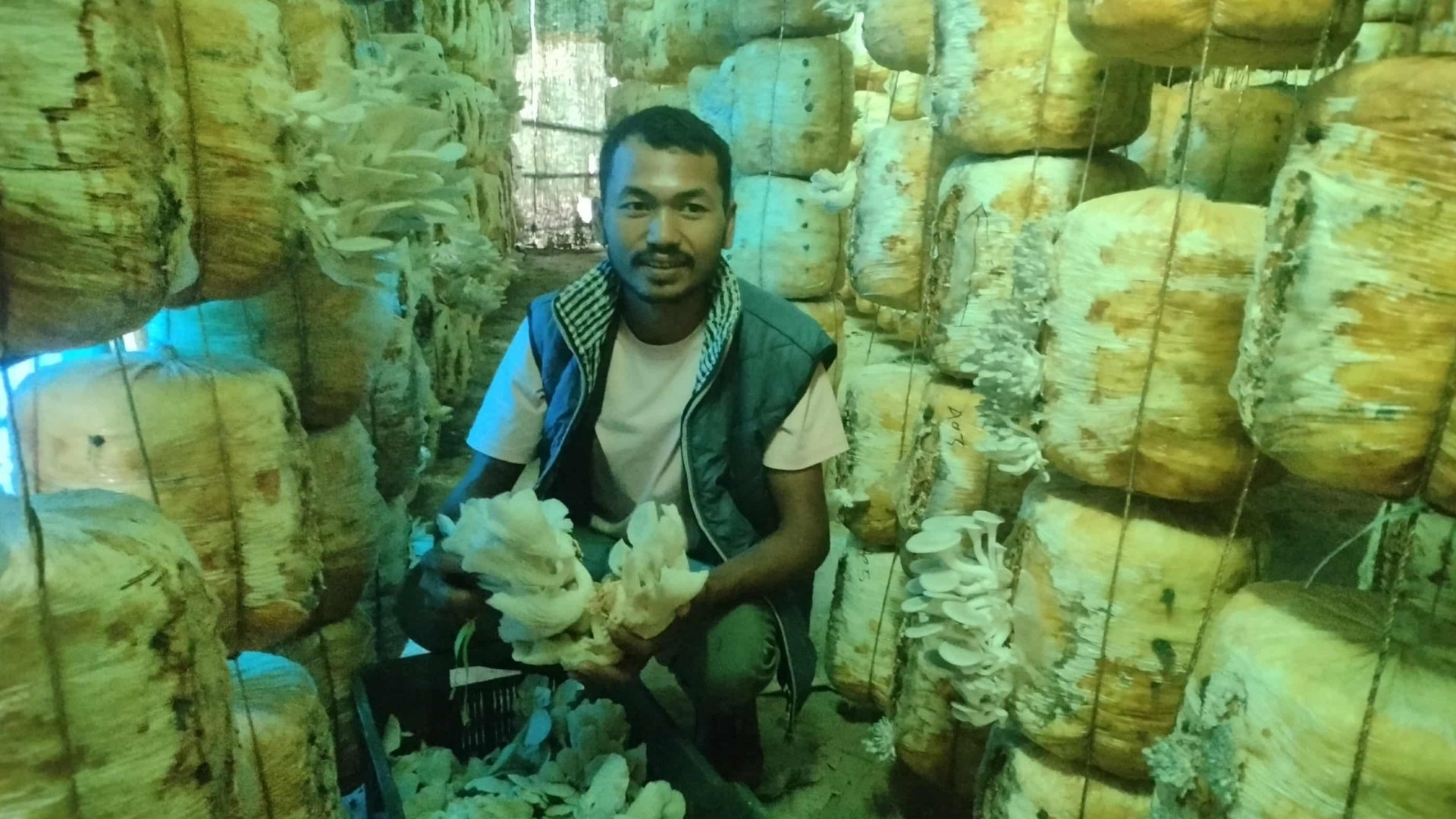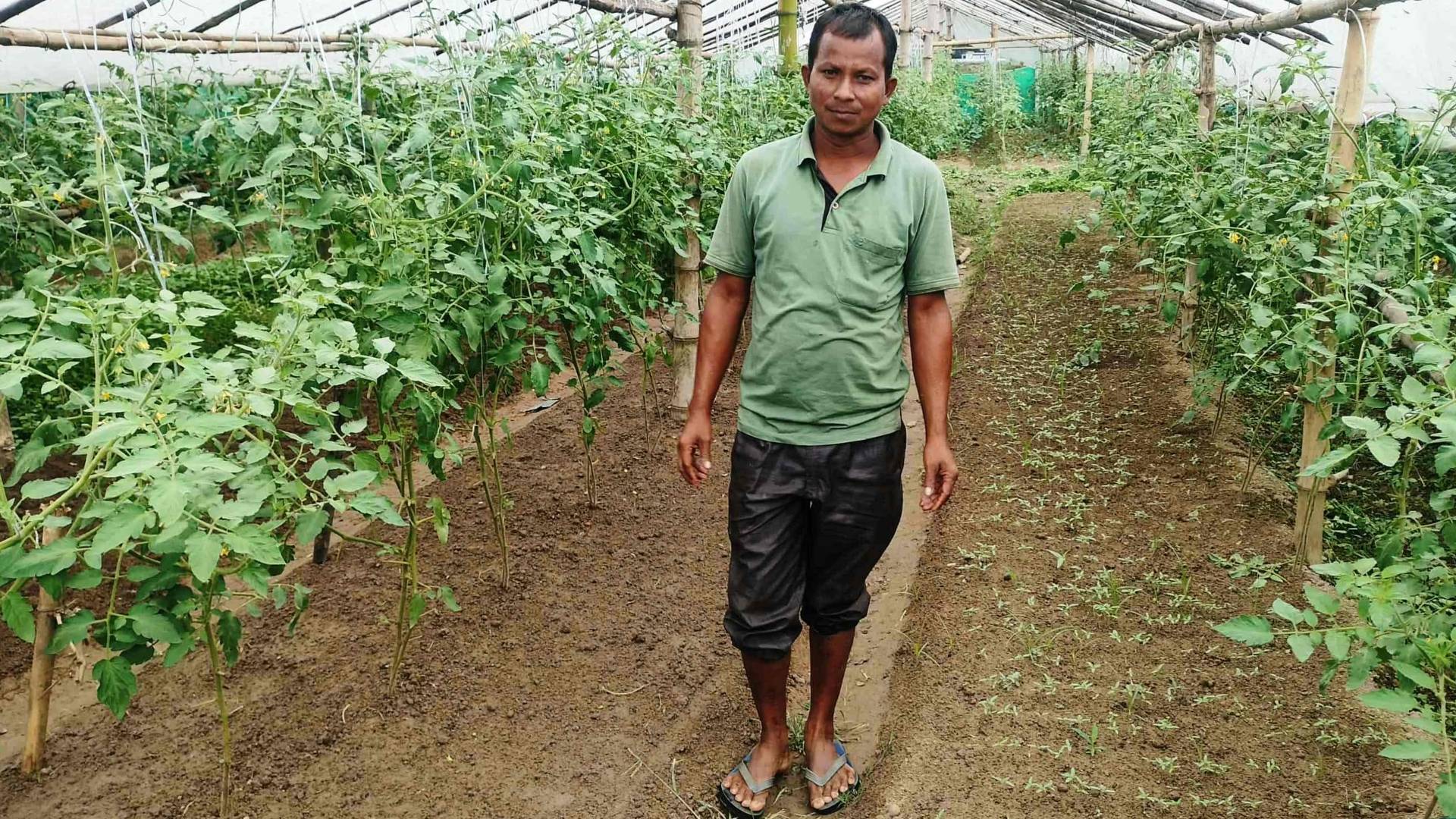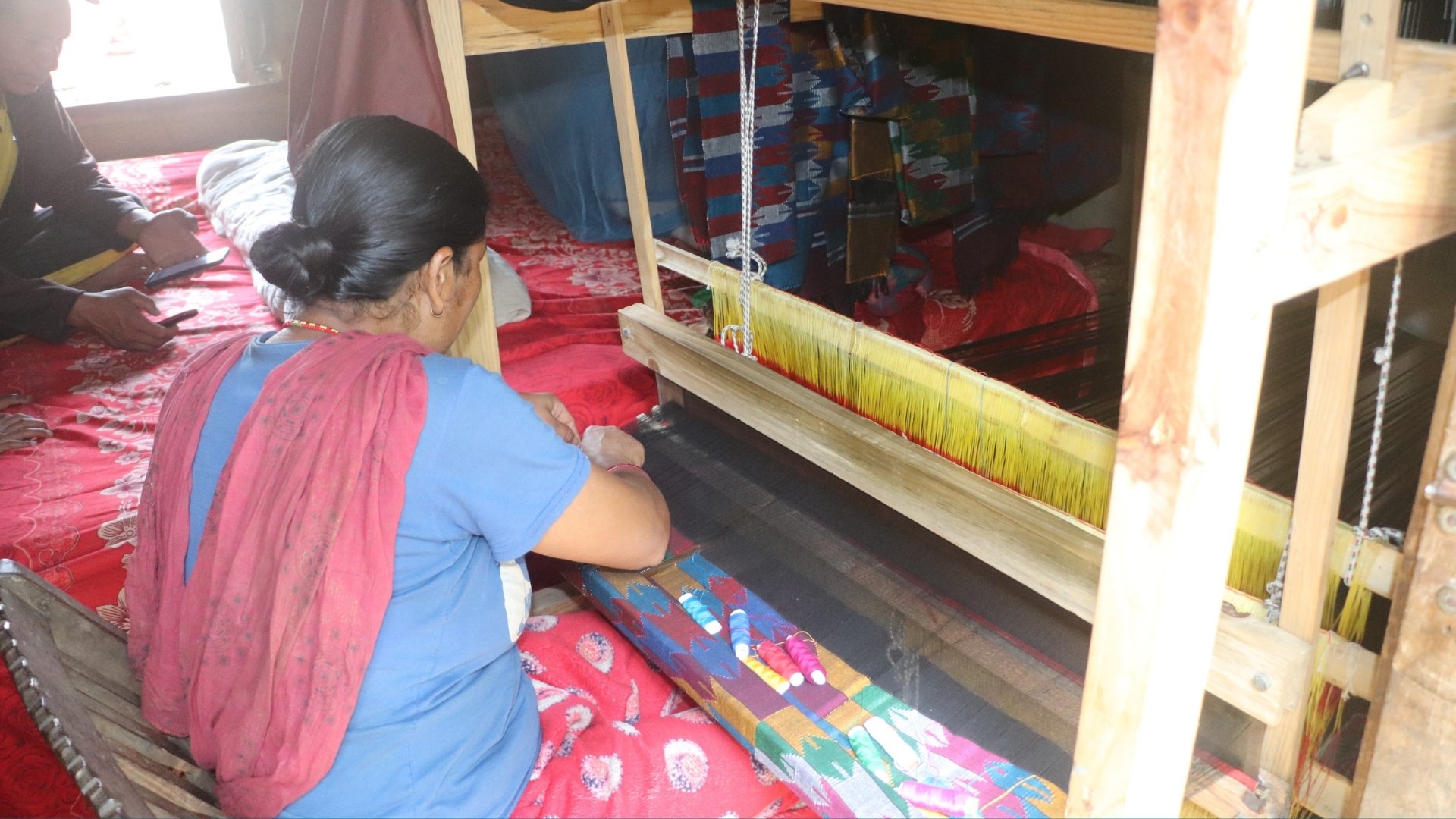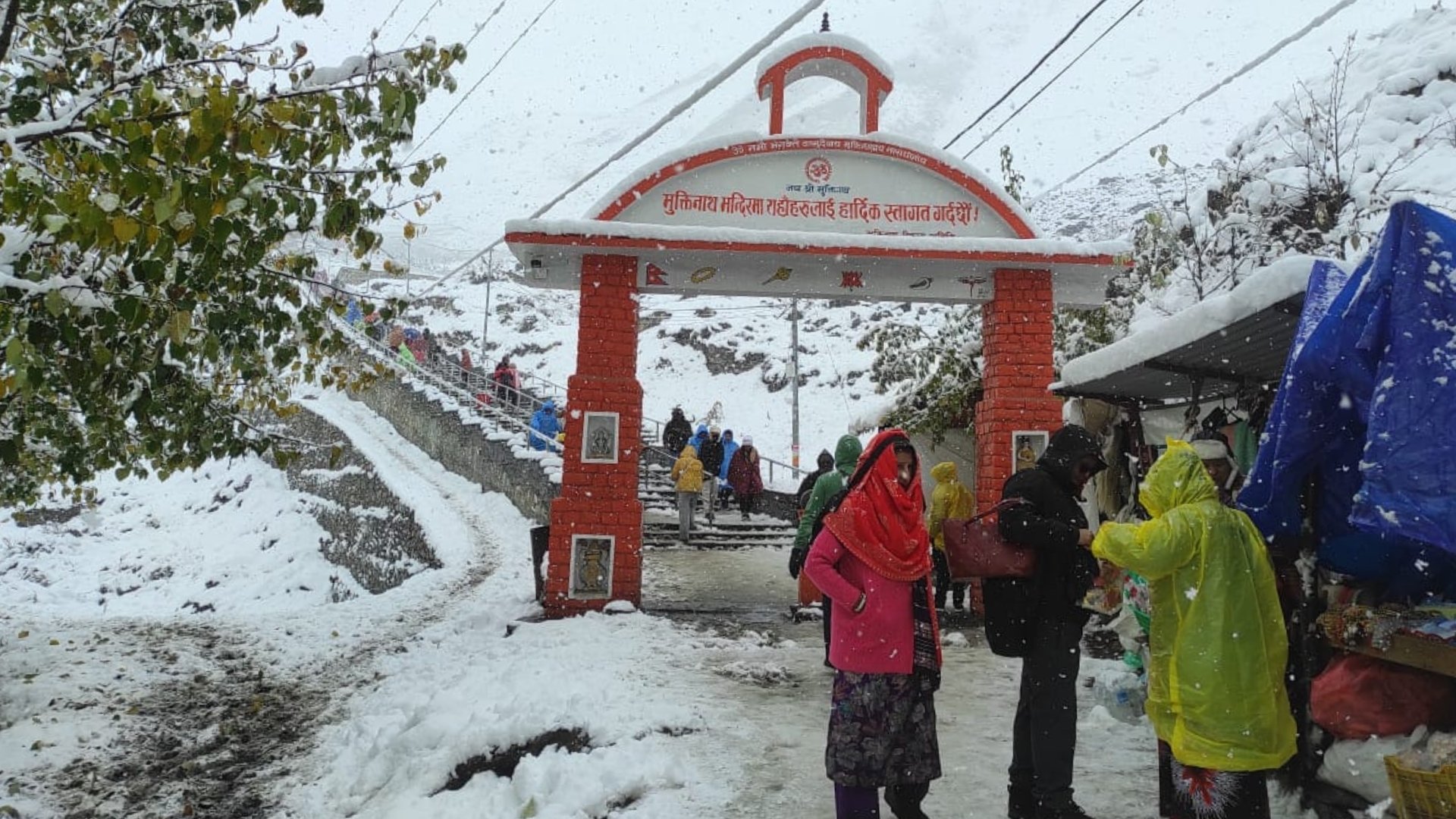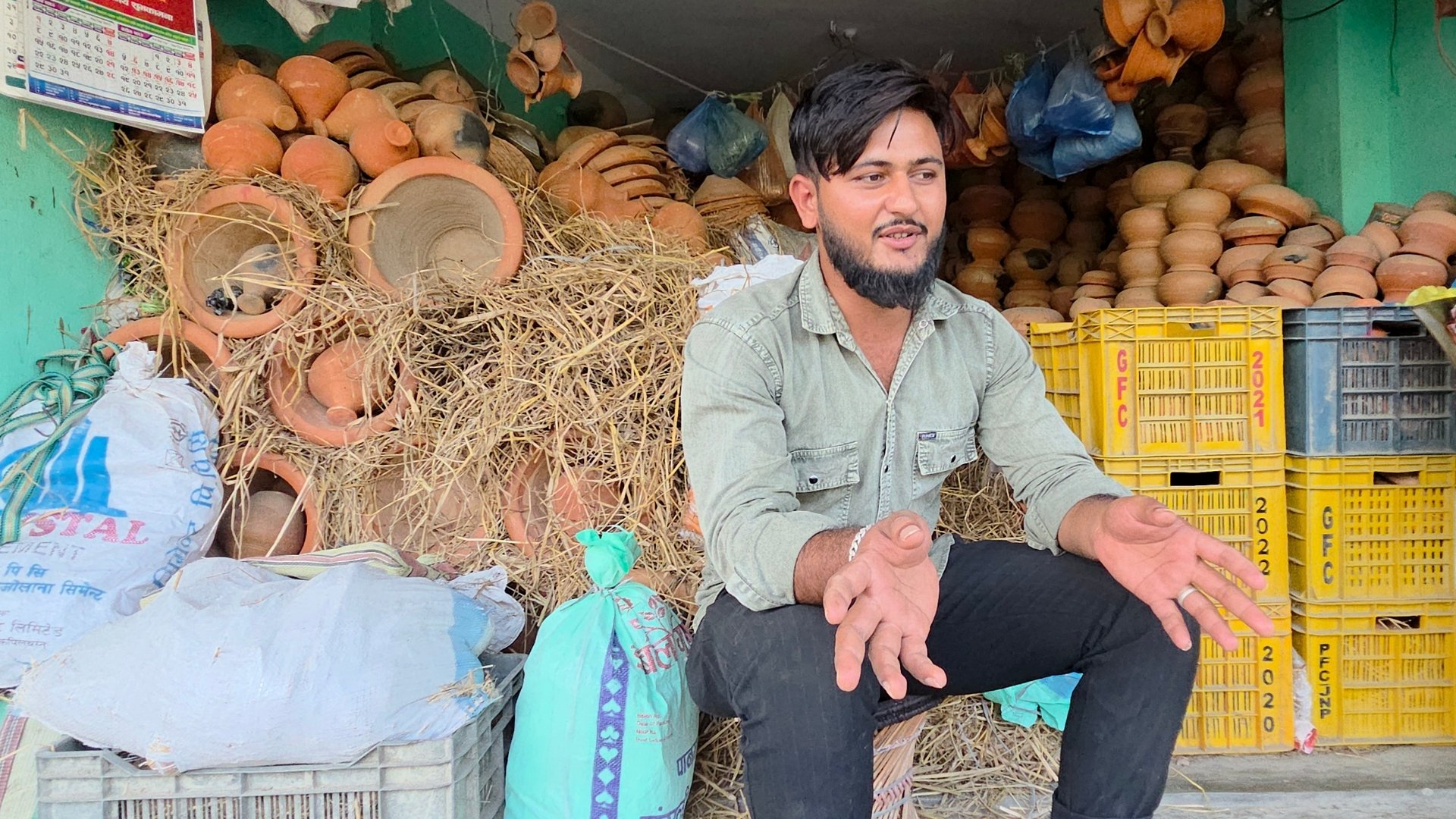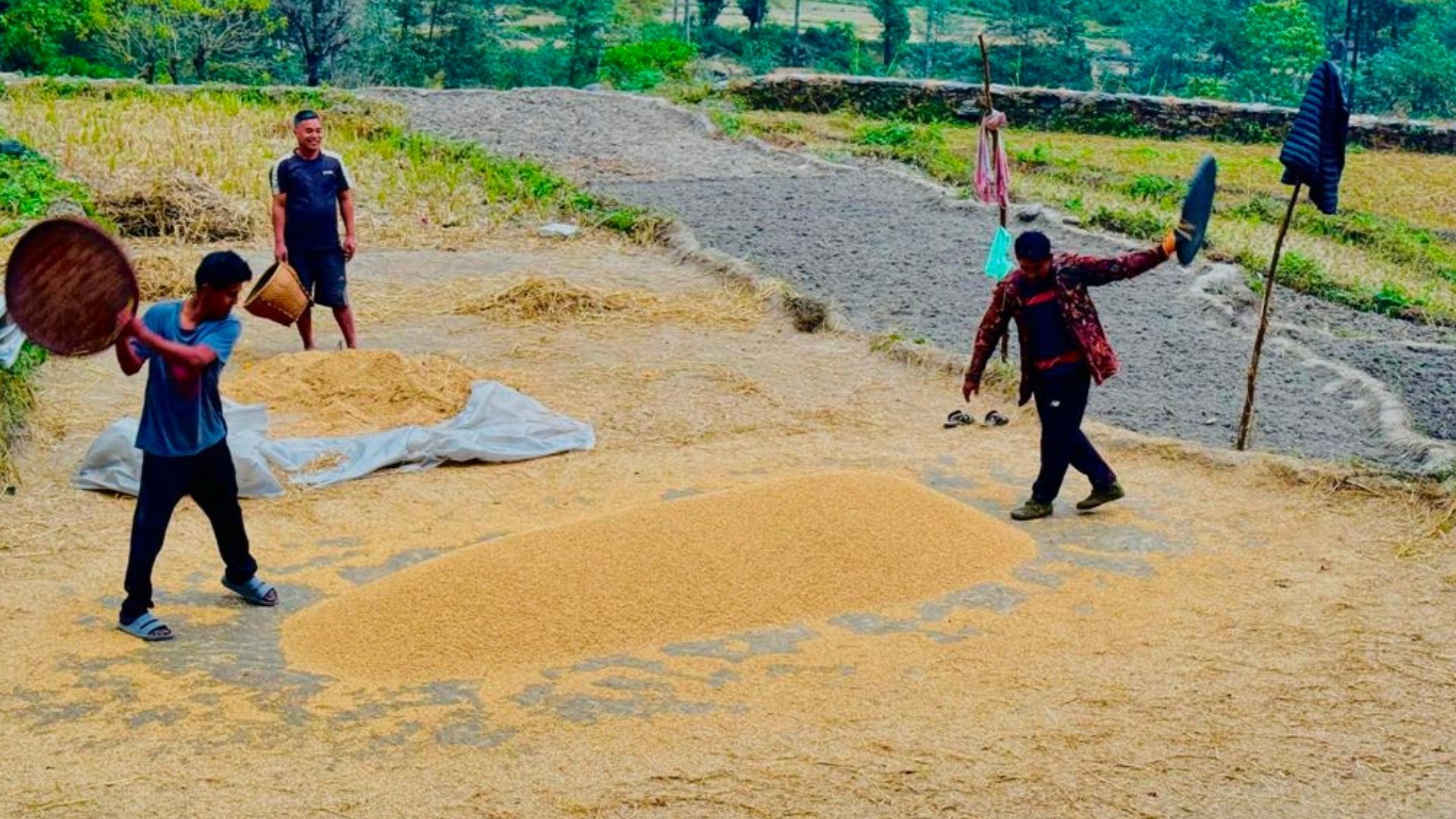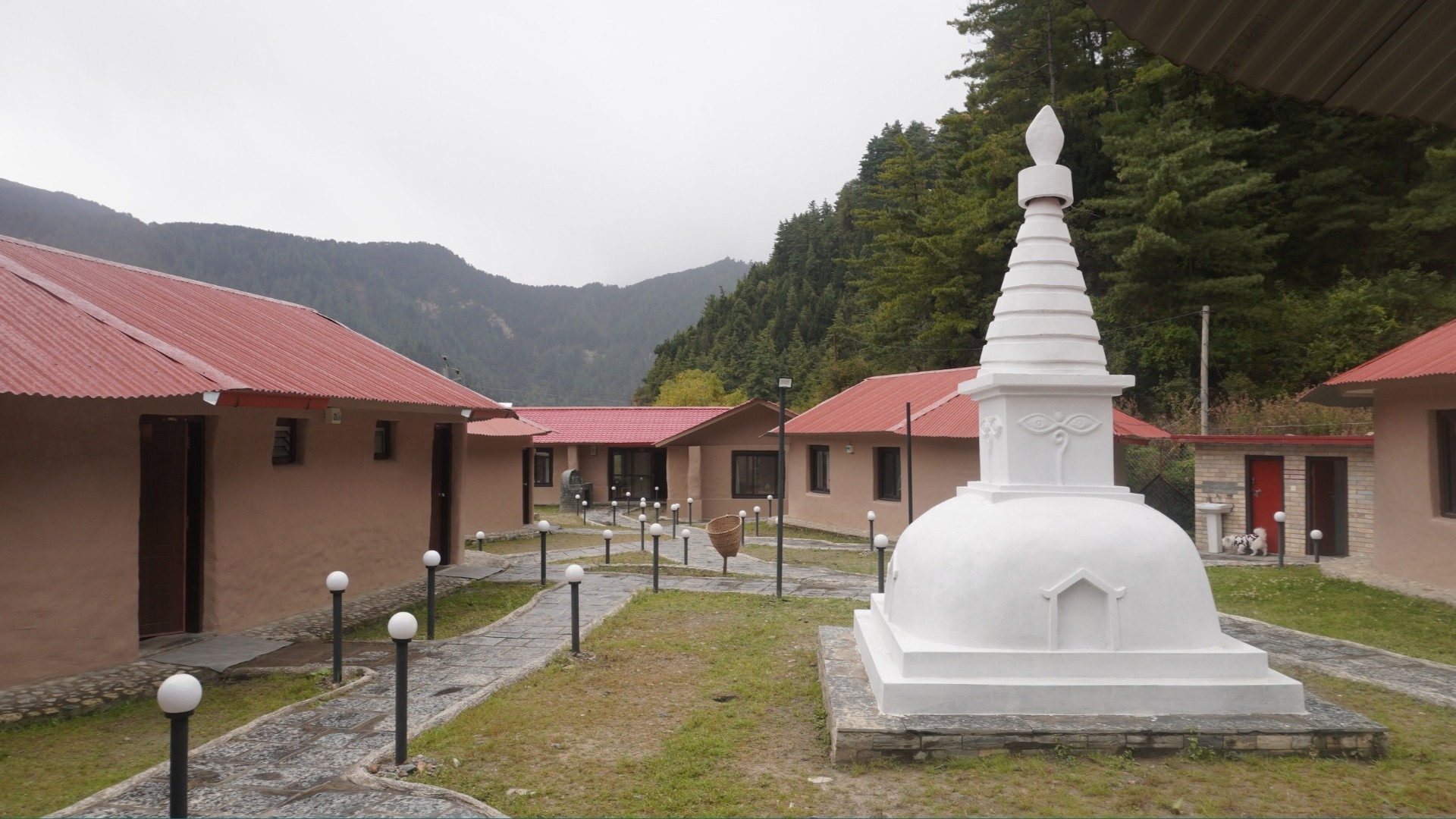The industry was initiated by Mohan Raj Sharma Paudel in 2044 BS and is currently managed by his younger brother Manoj Paudel. He says that the entire family has been involved in the Dhaka business. Manoj oversees the operations of the factory and showroom in Palpa, while the showroom in Maitidevi, Kathmandu, is managed by Mohan’s son Rahul Paudel, who also handles marketing and sales.
We had the idea of doing something within Nepal, if not a government job, then a trade or business,” recalls Manoj Paudyal about the origins of the industry. “That mindset led to the start of this venture.”
Started with an Investment of NPR 50,000 and Three Workers
When the business began, only three people were employed, and the initial investment was just NPR 50,000. At the time, looms were commonly found in homes, and Dhaka weaving was typically done domestically. Due to joint family systems, many people, particularly women, were involved in this craft. However, according to Manoj, this tradition is now disappearing even in Palpa.
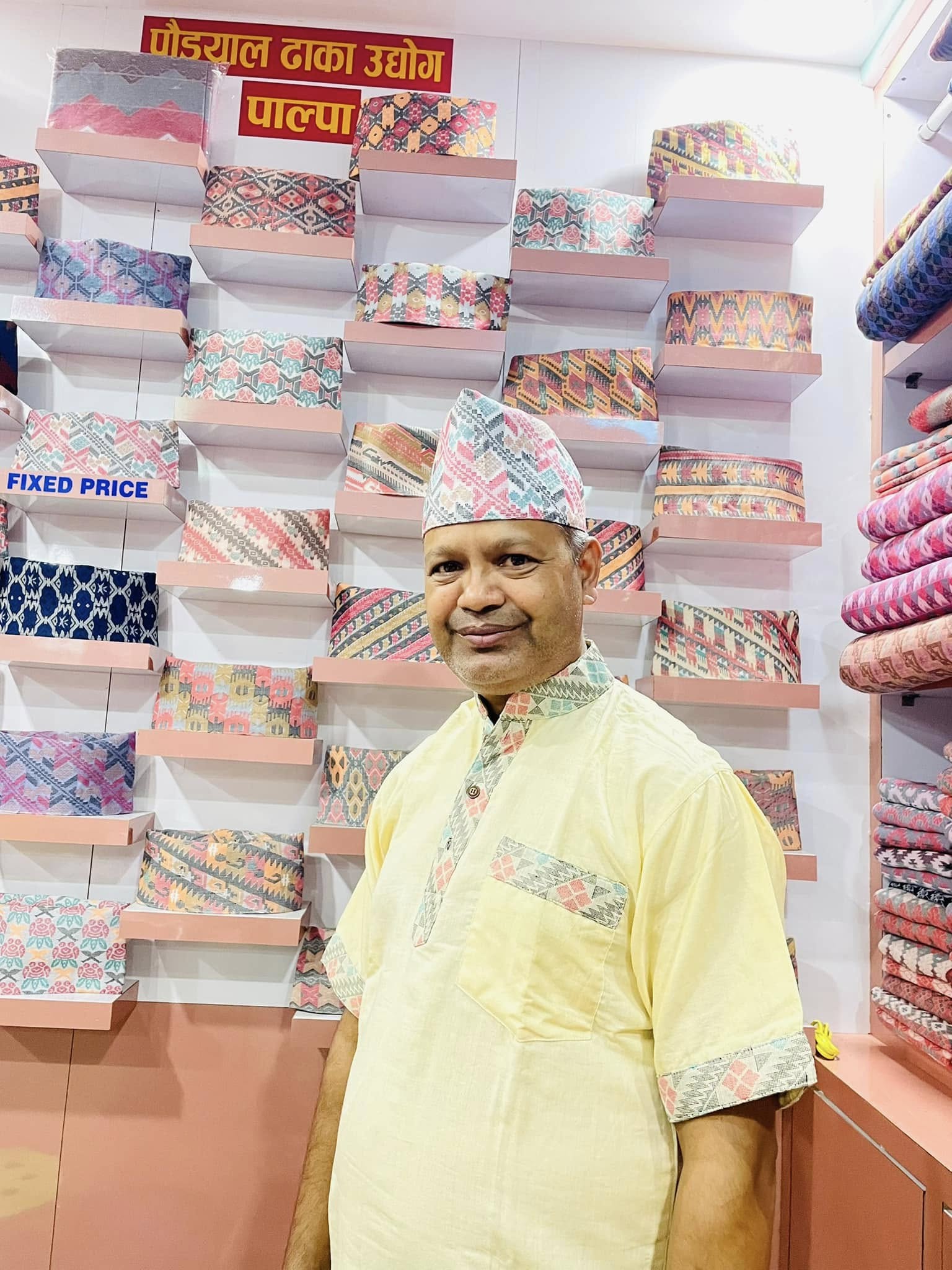
With the rise of nuclear families and the growing interest of the younger generation in other fields, the tradition of weaving Dhaka at home has declined. Additionally, as technology developed, machine-based weaving also made its way into the industry. Nevertheless, Paudyal Dhaka Industry has continued to rely on traditional handlooms.
“We are still working with handlooms,” says Manoj. “Machine-made fabric is different, it risks losing the authenticity of local products.” He emphasizes that their commitment to tradition is what keeps Palpa’s Dhaka heritage alive. Many handloom-based industries have shut down due to competition from machine-made products. “Some industries collapsed due to machines. We were also worried about that. But we kept going,” he adds.
Currently, the industry employs 60 people solely in weaving Dhaka, most of whom are women. An additional 10 to 15 individuals are employed in other roles. From an initial investment of NPR 50,000, the business has grown to an investment of around NPR 6 million, according to Rahul.
“Our investment increased due to machines and other needs,” says Rahul. “We have both factory-based and home-based weavers in villages.”
How’s the Dhaka business?
Over its four-decade journey, Paudyal Dhaka Industry has weathered conflict, economic instability, and market fluctuations.
“From the 2048 BS (1991 AD) movement to the political changes in 2070 BS (2013 AD), and the struggles of transporting goods, we’ve endured it all,” says Manoj.
During the industry’s early years, it lacked maturity, and it was difficult to compete with machine-made Dhaka fabrics in the market. “But by building stock and gradually selling, we survived,” he says.
With nearly 40 years in the Dhaka trade, Manoj has deep insight into the business. Machine-made fabric is cheaper, faster to produce, and widely available. However, handwoven fabric is superior in quality and, therefore, more expensive. Paudyal Dhaka Industry has preserved the identity of handwoven Dhaka. Rahul notes that their product range includes everything except Dhaka shoes, though those too can be made to order.
There’s a clear difference in both quality and price between machine-made and handcrafted Dhaka products. While machine-made Dhaka caps sell for NPR 200-300 in the market, Paudyal’s caps range from NPR 800-1,200. Some customers specifically seek authenticity, says Manoj. “When customers say they’ve finally found the genuine product, it makes the business feel worthwhile.”
Palpali Dhaka is a brand in itself, so they’ve never needed to create a separate brand name, says Manoj. Still, Paudyal Dhaka Industry has carved out a distinct identity within the realm of authentic Palpali Dhaka.
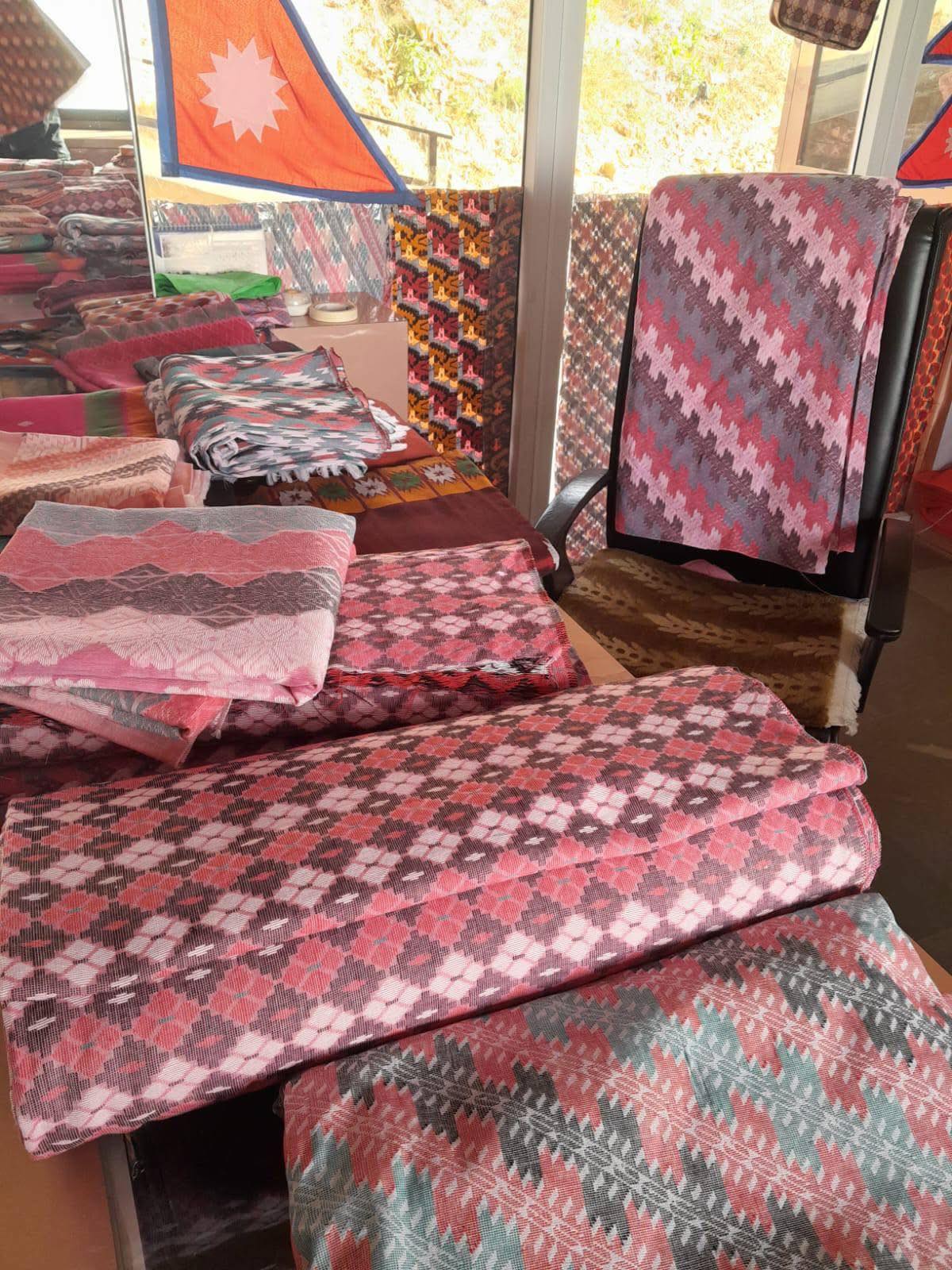
Despite the market being flooded with counterfeit products, customers are drawn to Paudyal Dhaka due to its quality. “Whether in Tansen or Kathmandu, customers seek us out,” says Manoj.
Rahul, who oversees marketing and sales in Kathmandu, reports that monthly sales range from NPR 800,000 to 1 million. “We operate showrooms in Palpa and Kathmandu, and our monthly turnover is around NPR 800,000 to 1 million,” he says. “We earn about a 20% profit from sales.”
Dhaka fabric sales also vary by season. Sales peak during festivals and wedding seasons. The most popular item is the Dhaka cap, according to Rahul. He adds that their market is focused entirely on domestic consumers.
“Our Dhaka products are sold within Nepal,” he says. “We don’t export them ourselves, but many customers buy them in Nepal and take them abroad as gifts.”
Dependence on imported raw materials | Unhelpful state policies
Though cotton thread used in Dhaka production is made in Nepal, it is not sufficient. Since various thread sizes are needed, it is often difficult to source them locally. In some cases, they buy from local traders, says Manoj, but most of it is still imported from India.
In the past, they used to source thread from the Butwal Thread Factory while it was still operational. But with the factory now defunct, they are entirely dependent on imports for raw materials. Even importing is not easy due to cumbersome policies.

“The government allows PAN registration for businesses with up to NPR 5 million turnover, meaning VAT registration isn’t required,” says Manoj. “But when importing goods worth more than NPR 10,000, VAT registration is mandatory at customs. This kind of policy inconsistency and inconvenience causes issues.”
As a result, they often have to import raw materials through third parties. Manoj laments that government policies have created more hassles than support for businesses like theirs. “We’ve never felt the government has supported us,” he says.
“Sometimes we have to import under someone else’s name. Sometimes we have to pay GST in India. We get no exemptions for being an industry,” he adds. “The government shows no accountability towards businesses that are actually trying to create jobs and build something.”
Manoj is the youngest person registered as the industry’s official proprietor. He observes that younger generations show little interest in this line of work. “I might be the youngest person still involved in Dhaka business,” he says.
Working within the industry, he continues the legacy. “Handwoven fabric is where the authenticity lies. That’s why we are committed to preserving it,” he says.
However, he questions whether future generations will continue this tradition amid current policy challenges and instability. He feels that existing policies are made with large-scale industries in mind and are not favorable to small, local industries.
“We’ve managed to operate this business through our own efforts,” says Manoj. “If the government made things easier, we’d bring thread from India, create new designs, open larger showrooms, and employ not just 60 but 120 people. But for that, the government must support us through effective policy.”
Yubaraj Bhattarai is a journalist with a passion for literature. He has worked with media outlets like Annapurna Post, NepalLive.com, and Clickmandu. He holds a bachelor’s degree in journalism from RR Campus under Tribhuvan University.








